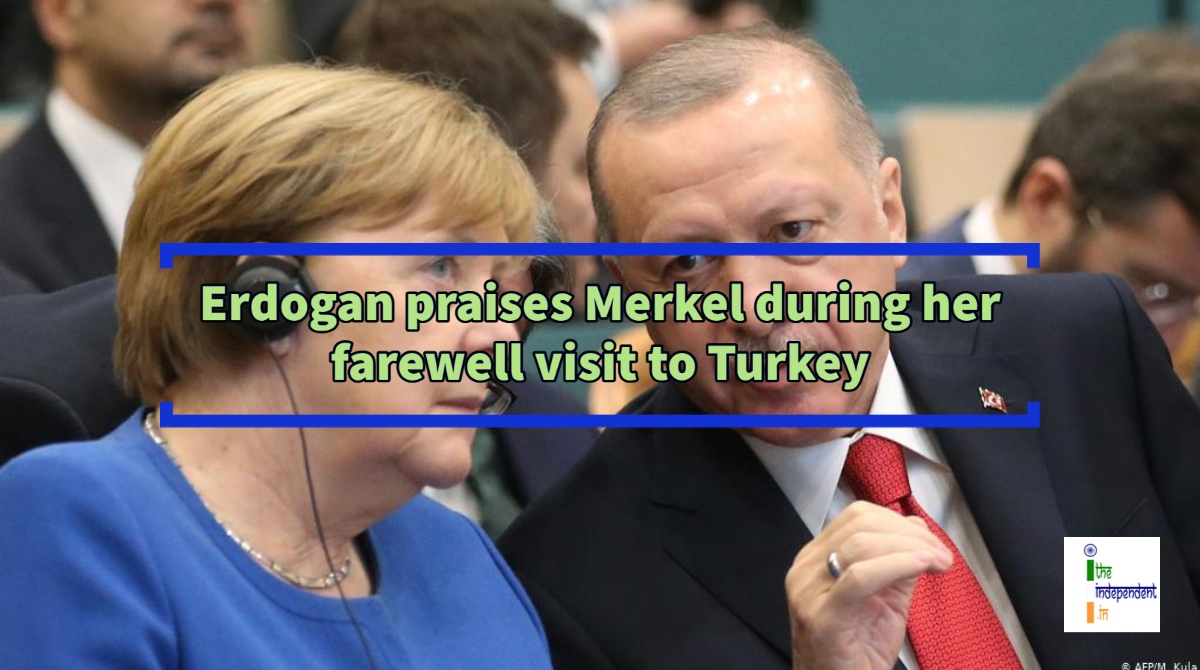
Angela Merkel has said Germany will continue to maintain a working relationship with Turkey, even when her term is over
The Chancellor of Germany – Angela Merkel has said Germany will continue to maintain a working relationship with Turkey, even when her term is over.
Her remarks came during her farewell visit to Turkey. She also stressed cooperation on migration and other issues and also defended Berlin’s diplomatic efforts at upholding human rights.
Addressing the media, Merkel said, “The relationship between Turkey and Germany, with its positive and negative sides, will go on. Everybody knows the security and independence of both our countries depends on each other.”
The Turkish President – Recep Tayip Erdogan said that Tukey would always remember the good faith and the contribution Merkel made towards maintaining ties with Turkey.
Erdogan told reporters, “From prevention of irregular migration from Syria, to dispatching humanitarian aid to northern Syria, on many topics Merkel did not abstain from taking the initiative and taking responsibility.”
Merkel’s Christian Democratic Party lost the Presidential polls last month and the new Government is expected to be a coalition that will likely be more centre-left. Merkel, who led Germany for 16 years, and Erdogan, who has led Turkey for 19 years, are perhaps the most seasoned political leaders in the region. At times, Merkel has pushed for maintaining ties with Turkey despite pressure at home over contentious issues such as migration and human rights.
Erdogan further said, “We have talked with and worked with many world leaders, and the chancellor was quite successful in administering Germany. We will watch the developments of our relations, but without a coalition [in Germany] they could have been in a better place. It’s not easy to work with a coalition government.”
Turkey and Germany hold close ties partly because of the presence of millions of Turkish immigrants in Germany. There are nearly four million people of Turkish heritage in Germany. These include doctors, scientists, and academicians. This year marks the 60th anniversary of a landmark labour agreement that brought Turkish workers to Germany.
Turkey wants to become a full member of the European Union (E.U.) but currently faces censure and possible suspension of its membership in the Council of Europe over its human rights record at home.
Over the last few years, Germany and Turkey have been discussing the problems of refugees and migrants, millions of whom have made their way through Turkey, heading west in an effort to settle in the E.U. Turkey has repeatedly said it would like European governments to do more to stem the flow of migrants.
In 2016, Merkel pushed through a deal between the E.U. and Turkey that would deliver U.S. $ 7 billion in exchange for Turkey hosting that tide of refugees and migrants. Over the years, Erdogan complained that funding never reached Turkey and threatened to lift obstacles to migration.







